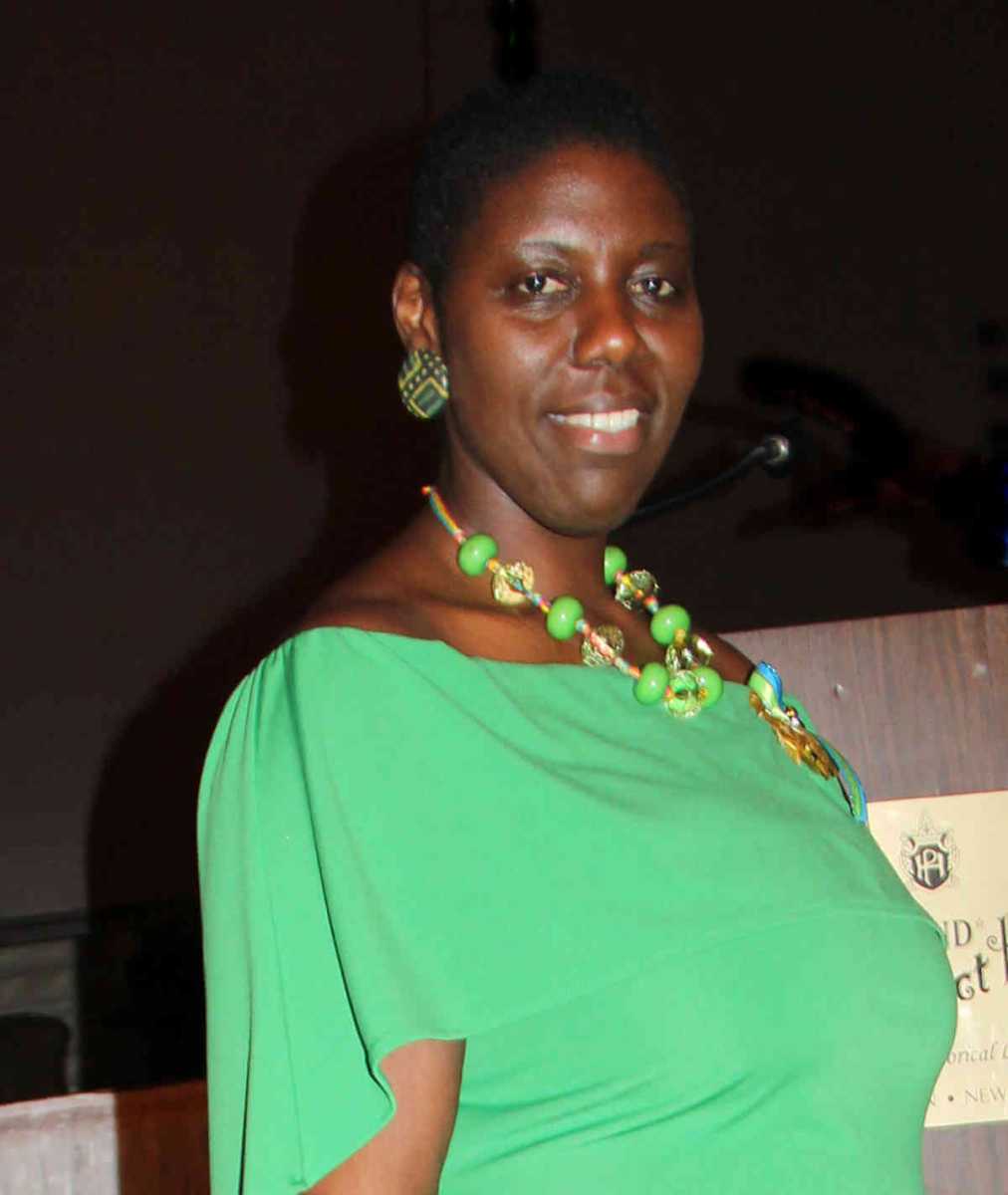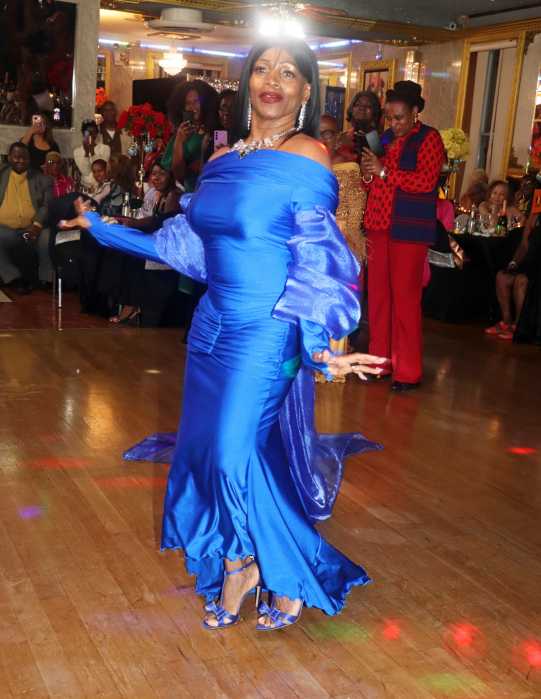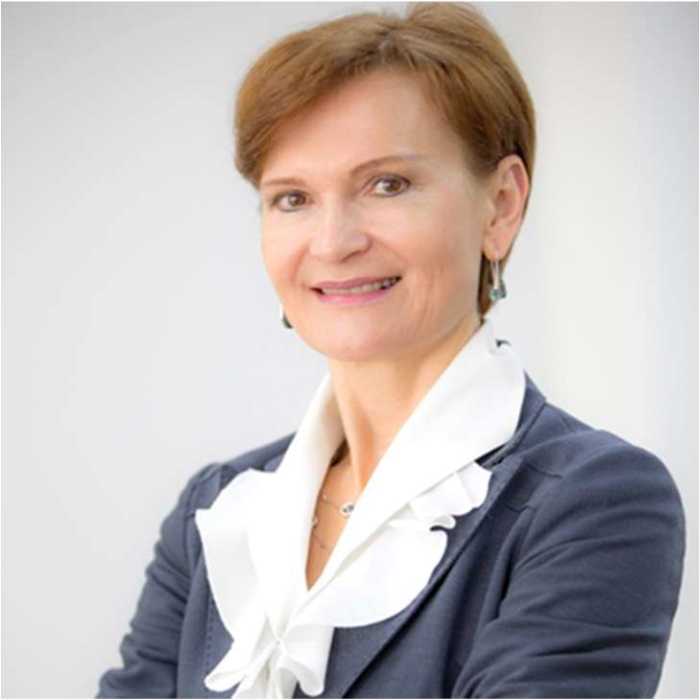Sherill-Ann Mason-Haywood, chairperson of the Brooklyn-based St. Vincent and the Grenadines (SVG) Diaspora Committee of New York, wants 2019 to be a “decisive year of collaboration” for Vincentians in the Diaspora.
“Now more than ever, the powerful saying, ‘United We Stand, Divided We Fall,’ must be watch words that immigrant communities, like the Vincentian Diaspora, embrace if they are to survive and thrive,” writes Mason-Haywood in the souvenir journal, commemorating the 36th anniversary of the Brooklyn-based St. Vincent and the Grenadines Ex-Teachers Association of New York.
“This is especially true since, in recent years, there has been a resurgence of racist vitriol and policies that target certain immigrant communities and threaten their security,” added Mason-Haywood, who succeeded her late husband, Maxwell Haywood, as chairperson of the Committee, who succumbed to cancer. “These threats expose the vulnerability of communities that have not fully consolidated their political and economic power as a strong community.”
Mason-Haywood said the Vincentian Diaspora, like other Caribbean Diasporas, can be counted among the vulnerable communities.
Although present in the United States, and more specifically New York, since the early 1950s, she said that the Vincentian Diaspora is yet to establish itself as “a fully unified community.”
“While one can point to several successful individuals who have or are making outstanding contributions to the United States, or to numerous organizations, associations and groups that have existed, and still exist, that bring Vincentians together to raise funds for philanthropic efforts or to participate in educational, sporting or cultural events, there still remains a void in terms of lasting collective legacies,” Mason-Haywood said.
“If we are honest in our assessment, we will admit that there are few, if any, receipts that bear witness to our collective impact,” she added.
The Diaspora Committee chair said, while there are organizations, such as the umbrella Vincentian group in the US, the Brooklyn-based Council of St. Vincent and the Grenadines Organizations, U.S.A., Inc. (COSAGO), “that have been around for decades, they still have not wielded the full power of their potential.
“We should, therefore, seek to strengthen our existing organizations rather than further continuously fragment our relatively small Diaspora community with a proliferation of smaller groupings that compete against each other to achieve noble goals that are not dissimilar,” she urged.
Mason-Haywood said the lack of receipts is also evidenced by several shortcomings in the Vincentian Diaspora community, stating: “We still do not have a structure, with a well-oiled mechanism in place that can quickly mobilize and respond to disasters that may occur in SVG or in the Diaspora.
“We still do not have any real estate that is owned by the Vincentian community, like a ‘Vincy House,’ which has long been talked about in many circles,” she added. “We do not have any sporting clubs that have survived and can boast of the triumphs of the glory days of Hairoun Sports Club; no cultural traditions like the ‘95th Street Labor Day festivities’ (in Brooklyn) that were once a staple in the Caribbean community.
“We still do not have any centralized documentation of our presence and impact in the USA or the New York area,” Mason-Haywood continued. “And we still have no real political power, as evidence by the lack of our involvement as a unified community that advocates for resources in our collective interests.
“These are among the receipts that, together, we must now seek to strategically collect to consolidate our existence as a strong, unified community,” she said. “It is, therefore, imperative that we urgently come to the table to pool our collective intellectual, social, economic and political resources, if we are to survive the real threats that lurk around immigrant communities.”
She noted that other Diaspora communities, which have pooled their resources and consolidated their existence, “have shown their resilience and collective power in pushing back against real threats to their existence.”
Moreover, Mason-Haywood said Diasporas, in recent decades, have been seen as “a powerful tool for development, which is being promoted by international organizations, like the United Nations (UN), International Labor Organization (ILO) and International Organization for Migration (IOM).”
For example, she said, the economic impact of the individual remittances sent back to St. Vincent and the Grenadines has “significantly contributed to the buoyancy of the local economy.
“This, in itself, should inspire us to do more collectively, but also to ensure that we are investing in our adopted home country to secure our own well-being as a vibrant community, with the means of sustaining our efforts to make even more impactful contributions,” she said.
“Hence, we must urgently find the will and the ways to bring forth a more unified Vincentian Diaspora community,” urged Mason-Haywood, stating that “the document, ‘SVG-USA Diaspora Framework for Action,’ which emerged from the 2009 Homecoming Conference and is housed on the website of the SVG Diaspora Committee of NY Inc. (www.svgdi
For example, she pointed to section E of the document, “Political Participation in Host Countries or Diaspora Location,” which recommends, among other things, that “Vincentians in the Diaspora should become more involved in the political processes of their host country.”
Section E states that “this participation in the political processes of the host country will allow Vincentians the opportunity to help in shaping the conditions under which they live,” adding that “this will place Vincentians in the Diaspora in a position to make better and more contributions to St. Vincent and the Grenadines.”
Mason-Haywood said, 10 years after the 2009 Homecoming Conference, is now “an opportune time for us to revisit this outcome document and swiftly move to implement the recommendations that provide a good blueprint for us to move forward collectively in the future.
“Therefore, we must endeavor to make 2019 a decisive year of change, collaboration and consolidation for the Vincentian Diaspora community,” she stressed. “We must fully embrace the motto, ‘United We Stand, Divided We Fall.’”



























